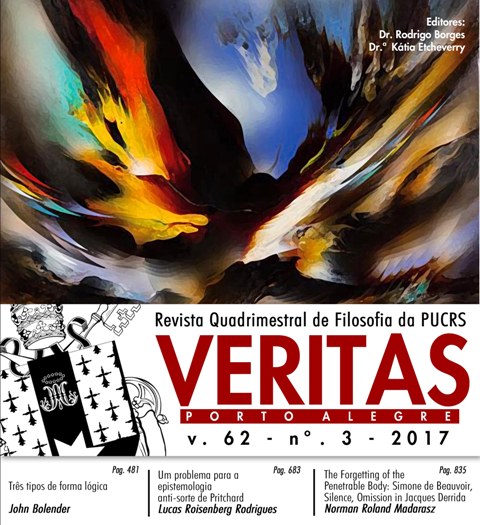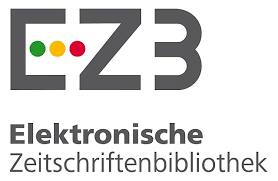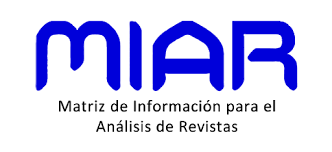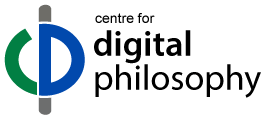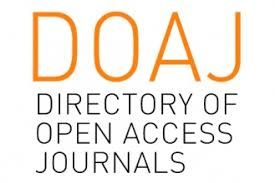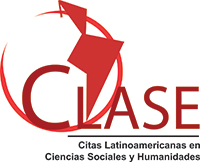An issue for Wegner’s theory about the conscious will: the Readiness Potential does not conclusively represent preparation for an action
DOI:
https://doi.org/10.15448/1984-6746.2017.3.30195Palavras-chave:
vontade consciente, Potencial de Prontidão, ação, experiência.Resumo
***Um problema para a teoria de Wegner sobre a vontade consciente: o Potencial de Prontidão não representa a preparação para uma ação de maneira conclusiva***
O papel da vontade consciente na produção de ações tem recebido bastante atenção tanto da filosofia como da neurociência. Wegner (2002) afirma que o que ele chama de vontade consciente não desempenha nenhum papel na produção causal das ações humanas, e que a mesma é apenas uma ilusão. Será argumentado no presente artigo que a afirmação de Wegner está equivocada, porque a sua defesa da suposta ilusão está fundamentada em como ele concebe o que o Potencial de Prontidão representa em um experimento crucial – o experimento de Libet – e essa concepção está errada. Portanto, Wegner não oferece uma razão convincente para se crer que os seres humanos estão iludidos a respeito de como produzem suas ações.
Downloads
Referências
BAARS, B. A cognitive theory of consciousness. New York: Cambridge University Press, 1988.
BOGEN, J. E. “The illusion of conscious will: Affective or cognitive?” In: Précis of the illusion of conscious will. Behavioral and Brain Sciences, 27(5) (2004), p. 12-13. DOI: https://doi.org/10.1017/S0140525X04000159
CARLSON, S. M. “Development of conscious control and imagination”. In: BAUMEISTER, R.; MELE, A.; VOHS, K. (Eds.). Free will and consciousness: How might they work? Oxford: Oxford University Press, 2010, p. 135-152. DOI: https://doi.org/10.1093/acprof:oso/9780195389760.003.0009
CRANE, T. “Review of Mind Time by Benjamin Libet”. In: TLS, January 2005.
DEHAENE, S.; CHANGEUX, P.; NACCACHE, L.; SACKUR, J.; SERGENT, C. “Conscious, preconscious, and subliminal processing: a testable taxonomy”. Trends in Cognitive Science, 10(5) (2006), p. 204-2011. DOI: https://doi.org/10.1016/j.tics.2006.03.007
DAVIDSON, D. “Individuation of action”. In: DAVIDSON, D. Essays on Actions and Events. Oxford: Oxford University Press, 1980 [1969], p. 163-180.
DELGADO, J. M. Physical control of the mind: Towards a psychocivilized society. New York: Harper and Row, 1969.
HAGGARD, P.; CLARK, S. “Intentional action: Conscious experience and neural prediction. Consciousness and Cognition, 12(4) (2003), p. 695-707. DOI: https://doi.org/10.1016/S1053-8100(03)00052-7
HERRMANN, C. S.; PAUEN, M.; MIN, B.; BUSCH, N. A.; RIEGER, J. W. “Analysis of a choice-reaction task yields a new interpretation of Libet's experiments”. International Journal of Psychophysiology, 67(2) (2008), p. 151-157. DOI: https://doi.org/10.1016/j.ijpsycho.2007.10.013
HORGAN, T. “The phenomenology of agency and the Libet results”. In: SINNOT-ARMSTRONG, W.; NADEL, L. (Eds.). Conscious will and responsibility. Oxford: Oxford University press, 2010, p. 159-172. DOI: https://doi.org/10.1093/acprof:oso/9780195381641.003.0015
JACK, A. I; ROBBINS, P. “The illusory triumph of machine over mind: Wegner’s eliminativism and the real promise of psychology”. In: Précis of the illusion of conscious will. Behavioral and Brain Sciences, 27(5) (2004), p. 17-18. DOI: https://doi.org/10.1017/S0140525X0429015X
JO, H.; HINTERBERGER, T.; WITTMANN, M.; BORGHARDT, T. L.; SCHMIDT, S. “Spontaneous EEG fluctuations determine the Readiness Potential: Is preconscious brain activation a preparation process to move?”. Experimental Brain Research, 231(4) (2013), p. 495-500. DOI: https://doi.org/10.1007/s00221-013-3713-z
LIBET, B.; GLEASON, C. A.; WRIGHT, E. W.; PEARL, D. K. “Time of conscious intention to act in relation to onset of cerebral activity (Readiness-Potential): The unconscious initiation of a freely voluntary act”. Brain, 106(3) (1983), p. 623-642. DOI: https://doi.org/10.1093/brain/106.3.623
LIBET, B. “Unconscious cerebral initiative and the role of conscious will in voluntary action”. The Behavioral and Brain Sciences, 8(4) (1985), p. 529-566. DOI: https://doi.org/10.1017/S0140525X00044903
LOWE, E. J. Personal agency: The metaphysics of mind and action. Oxford: Oxford University Press, 2008. DOI: https://doi.org/10.1093/acprof:oso/9780199217144.001.0001
MELE, A. Effective Intentions. New York: Oxford University Press, 2009. DOI: https://doi.org/10.1093/acprof:oso/9780195384260.001.0001
NAHMIAS, E. “When consciousness matters: A critical review of Daniel Wegner’s the illusion of conscious will”. Philosophical Psychology, 15(4) (2002), p. 527–541. DOI: https://doi.org/10.1080/0951508021000042049
O’SHAUGNASSEY, B. “The will”. In: GUTTENPLAN, S. (Ed.). A companion to the philosophy of mind. Oxford: Blackwell Publishers, 1996, p. 610-17.
PANKSEPP, J. “Free will and the variety of affective and cognitive selves”. In: Précis of the illusion of conscious will. Behavioral and Brain Sciences, 27(5) (2004), p. 23-24. DOI: https://doi.org/10.1017/S0140525X04360152
PENFIELD, W. The mystery of mind. Princeton: Princeton University Press, 1975.
SCHLEGEL, A.; ALEXANDER, P.; SINNOTT-ARMSTRONG, W.; ROSKIES, A.; TSE, P. U.; WHEATLEY, T. “Barking up the wrong free: Readiness Potentials reflect processes independent of conscious will”. Experimental Brain Research, 229(3) (2013), p. 329-35. DOI: https://doi.org/10.1007/s00221-013-3479-3
SCHURGER, A.; SITT, J. D.; DEHAENE, S. “An accumulator model for spontaneous neural activity prior to self-initiated movement”. Proceedings of the National Academy of Sciences, 109(42) (2012), p. E2904-13. DOI: https://doi.org/10.1073/pnas.1210467109
SERGENT, C.; BAILLET, S.; DEHAENE, S. “Timing of the brain events underlying access to consciousness during the attentional blink”. Nature Neuroscience, 8(10) (2005), p. 1391-1400. DOI: https://doi.org/10.1038/nn1549
TREVENA, J.; MILLER, J. “Brain preparation before a voluntary action: Evidence against unconscious movement initiation”. Consciousness and Cognition, 19(1) (2010), p. 447–456. DOI: https://doi.org/10.1016/j.concog.2009.08.006
WEGNER, D. The illusion of conscious will. Cambridge: MIT Press, 2002. DOI: https://doi.org/10.7551/mitpress/3650.001.0001
WEGNER, D. “Self is magic”. In: BAER, J.; KAUFMAN, J. C.; BAUMEISTER, R. F. (Ed.). Are we free? Psychology and free will. New York: Oxford University Press, 2008, p. 227–247.
Downloads
Publicado
Como Citar
Edição
Seção
Licença
Direitos Autorais
A submissão de originais para a Revista Veritas implica na transferência, pelos autores, dos direitos de publicação. Os direitos autorais para os artigos publicados nesta revista são do autor, com direitos da revista sobre a primeira publicação. Os autores somente poderão utilizar os mesmos resultados em outras publicações indicando claramente a Revista Veritas como o meio da publicação original.
Licença Creative Commons
Exceto onde especificado diferentemente, aplicam-se à matéria publicada neste periódico os termos de uma licença Creative Commons Atribuição 4.0 Internacional, que permite o uso irrestrito, a distribuição e a reprodução em qualquer meio desde que a publicação original seja corretamente citada. Copyright: © 2006-2020 EDIPUCRS
